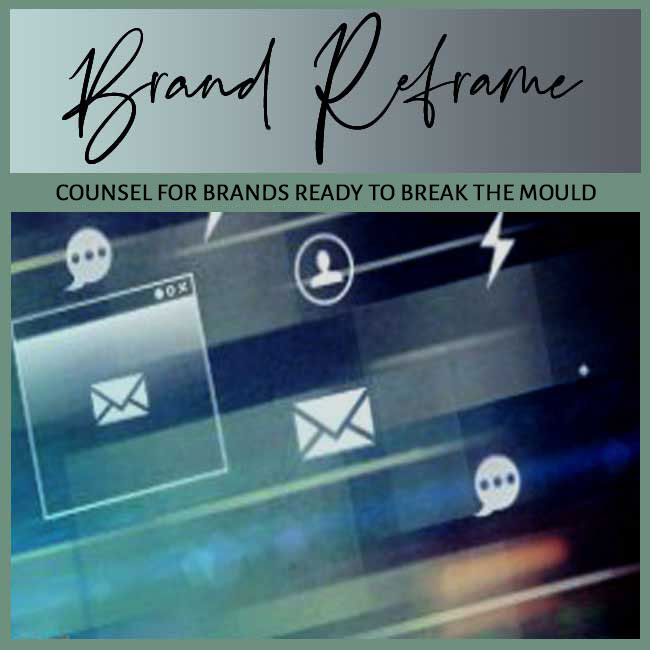
BY: SHOBHA PONNAPPA | BRAND BREAKTHROUGH STRATEGIST | 45 YEARS | 125+ CLIENTS
Brand experience is the total emotional and practical impression that customers form when interacting with your business across all touchpoints. It includes everything from discovering your brand online, purchasing a product, using it, and receiving support, to remembering how they felt after. When well-designed, it builds powerful memories that foster trust, connection, and loyalty.
In my decades of consulting, I have seen that brand experience is more than customer service or packaging; it is the sum of every impression your brand leaves. Each channel … from digital to physical … adds to an emotional story. If those touchpoints feel disjointed, customers question your credibility. Experience truly is the living proof of your promise.
Today’s customers are spoiled with options and can switch loyalty at a click. They are drawn to brands that deliver consistent and meaningful encounters rather than just products. Social media amplifies every good or bad moment instantly, rewarding those who delight and exposing those who disappoint. A single careless interaction can unravel years of branding and advertising work. Experiences now shape reputation far faster than paid marketing ever can. Delight has become a survival strategy, not a luxury.
Markets have moved from transactional to experiential value, where how people feel matters more than what you sell. Brands that design for emotion stay relevant longer and retain loyalty even in downturns. Investors, too, track experience through retention and advocacy metrics. The strength of a brand’s experience can influence valuation as much as revenue growth. Designing with empathy and coherence protects long-term equity.
A strong brand experience begins with a seamless journey across all channels that makes customers feel confident and cared for. From websites and social feeds to retail stores and service desks, the brand should feel coherent. Disjointed or inconsistent interactions frustrate customers and lead to lost sales. I help brands map each step of the journey, eliminate friction, and unify tone across platforms. This clarity simplifies decisions for customers and increases loyalty. Consistency builds trust before a single purchase is made.
A seamless journey also boosts operational efficiency and team morale. When everyone knows the customer path clearly, service improves naturally. Technology can connect systems so customers never have to repeat themselves. Training ensures all staff embody the same tone and standards. Over time, this operational smoothness becomes invisible but powerful. Frictionless experiences keep customers coming back.
Great brand experiences evoke memorable and relevant emotions that align with the brand’s promise. Whether it is joy, empowerment, safety, or sophistication, emotion drives both recall and advocacy. Purely functional products rarely generate long-term attachment. I guide brands to identify their core emotion and embed it in packaging, tone, and service rituals. This emotional clarity gives teams a reliable north star for design choices. Emotion turns one-time buyers into devoted advocates.
Emotional resonance also helps brands cut through noisy markets. People may forget facts but they remember how you made them feel. Designing for feeling requires listening deeply to your customers’ hopes and fears. It also means training employees to show empathy, not just process tasks. Even technology-led brands can feel human when designed with warmth. Feelings become the strongest brand differentiator.
The sensory signals of a brand … visuals, sound, touch … shape customer perception of quality instantly. Colours, typography, music, packaging, and spaces all send subtle cues about your care and credibility. Poorly chosen design elements cheapen perception even if the product is excellent. I have helped brands audit every sensory touchpoint and align them with desired identity. By refining these details, brands elevate delight and perceived value. Design choices quietly train customers on what to expect.
Strong sensory design also creates recognition across touchpoints. A signature sound, texture, or colour palette can anchor memory long after an ad is forgotten. Premium packaging can transform ordinary products into gifts. Cohesive aesthetics make scaling easier while staying distinct. Over time, small design details compound into reputation. Beautifully crafted cues make brands feel trustworthy and premium.
A brand’s people bring its promise to life through service culture and responsiveness. Every staff interaction … online or offline … can strengthen or break trust. Robotic scripts and slow replies destroy connection faster than poor ads. I coach leaders to create clear service guidelines that embody brand personality authentically. Empowered employees who care about outcomes make the experience feel alive. Human touch creates loyalty where automation cannot.
Responsiveness also shows respect and reliability. Quick, thoughtful solutions turn problems into loyalty moments. Clear escalation paths reduce frustration and anxiety for customers. Technology should support but not replace empathy. Teams that feel valued mirror that respect back to customers. Service culture is the heartbeat of brand experience.
Founders should begin by mapping the entire customer journey from awareness to long-term loyalty. Too often, early teams obsess about sales and neglect post-purchase or support. This leaves first buyers disappointed and kills referrals. Defining emotional anchor points early saves costly redesign later. I encourage brands to set “signature moments” that customers will always remember. Early intentionality avoids future experience gaps.
Authenticity matters from day one. Don’t copy competitors’ gestures blindly; build what fits your story and values. Onboarding new customers should feel welcoming and empowering, not confusing or robotic. Internal culture must support the desired experience at every level. When everyone understands their role in delighting customers, magic happens. Foundational clarity makes growth smoother.
As brands scale, experience quality can erode if not protected. New hires, partners, and processes can dilute the original promise. Leaders must codify standards and rituals so experience doesn’t rely on memory alone. I recommend regular audits, secret shopping, and feedback loops to find cracks early. These reviews keep systems and culture aligned. Continuous stewardship safeguards reputation.
Adaptation is equally important to avoid stagnation. Customer expectations evolve quickly with technology and culture. Refresh touchpoints without losing emotional anchors. Train teams on new tools but preserve the brand’s human essence. Celebrating milestones keeps staff motivated to deliver excellence. Dynamic care keeps experience fresh and credible.
One major pitfall is focusing only on visual identity while neglecting emotion and service. Pretty logos cannot fix poor delivery or robotic support. Another is treating experience as a marketing project instead of a company-wide responsibility. I often see leaders delegate it entirely to agencies with no operational influence. That creates beautiful campaigns but disappointing real-world moments. Experience dies when promise and delivery disconnect.
Another mistake is inconsistency across geographies or platforms. A polished website but clumsy retail interaction confuses customers. Scaling without training or documented standards leads to dilution. Ignoring customer complaints or slow responses worsens attrition. Overly complex processes frustrate rather than impress. Experience must be simple, reliable, and human to succeed.
I worked with a regional boutique hotel chain struggling to stand out against global giants. Their rooms were stylish but their service felt cold and inconsistent. I helped define their emotional anchor …“personal warmth in design-forward spaces.” Together we created small rituals like handwritten notes and locally sourced welcome gifts. Guests felt personally valued instead of processed. This transformation turned customers into storytellers who shared their delight online and boosted occupancy.
An established retail brand was losing relevance with younger audiences despite quality products. I redesigned their entire customer journey from storefronts to checkout to online touchpoints. Staff training pivoted from product specs to customer delight moments. Store playlists, packaging, and follow-up emails became fresh and welcoming. The brand regained emotional connection while respecting heritage. This revitalised experience attracted a new generation without alienating loyalists.
A SaaS start-up had an excellent product but a confusing, impersonal onboarding. I mapped their user flow and identified pain points in sign-up and support. We introduced friendly tutorials, proactive chat help, and simplified instructions. Customers felt guided and confident rather than abandoned. Retention rates rose significantly within months. A better onboarding experience drove long-term loyalty.
A fast-growing healthcare brand faced complaints about rushed, impersonal interactions. I encouraged leaders to anchor experience in “compassion backed by precision.” Service training added empathy and conversational skills. Appointment reminders became warm and reassuring. Patients began trusting and recommending the brand widely. Human-centred care turned criticism into powerful advocacy.
A luxury accessories house worried about losing prestige when going digital. I ensured online channels mirrored in-store elegance through packaging, service emails, and VIP concierge chats. Each click felt curated and personal. Customers felt respected and understood in digital spaces. Sales rose while brand cachet remained intact. Meticulous digital design translated heritage into modern delight.
A FinTech app was too technical and intimidating for mainstream users. I simplified its tone, visual style, and support interactions. Tutorials became friendly guides instead of jargon-heavy manuals. Users felt welcomed and capable instead of overwhelmed. Adoption grew far beyond early tech enthusiasts. A relatable experience opened doors to mass-market success.
Branding sets your identity and advertising spreads the word, but brand experience is the lived reality customers encounter at every touchpoint. It turns your promises into perception and perception into loyalty. Each interaction either strengthens or weakens your position. Advertising may spark interest, but experience keeps it alive. Over time, this reality builds your reputation far beyond campaigns.
High churn, low repeat purchase, and negative reviews are clear warnings. Customers who feel confused, ignored, or mistreated stop advocating. When emotional connection and consistency fade, experience is failing. Support tickets pile up unresolved and sentiment scores decline. Sales might hold briefly but long-term equity weakens. Listening to feedback early prevents deeper erosion.
It can survive with discounts or heavy marketing, but cannot build sustainable advantage. Price-driven loyalty is fragile and expensive to maintain. Competitors with better experience will eventually win. A compelling experience underpins lasting success. It creates organic reach and premium pricing power. Without it, brands risk commoditisation.
They codify service rituals, tone, and design standards so growth does not dilute them. Leadership must model desired behaviours clearly. Training and technology help but should not replace human judgment. Documented principles keep experience coherent. Regular audits catch drift early. Global consistency comes from clear playbooks and empowered teams.
At market shifts, growth inflection points, or when customers show fatigue. Proactive refresh avoids crisis-driven change. Keep the emotional heart while updating touchpoints to modern expectations. Regular audits ensure relevance and delight. New tech or cultural shifts should trigger review. Refreshing prevents stagnation and keeps loyalty alive.
They look at retention, referral rates, and customer advocacy. Employee alignment and service culture also matter. Consistency across channels shows strong systems. Strong experience translates to lower risk and premium valuation. Investors value brands with organic growth and happy users. Experience becomes proof of scalability and defensibility.
Explore Brand Experience Inconsistency … Real Cases & Fixes
Case Studies
FAQ Insights

"One BIG IDEA can turn brand stagnation into unstoppable movement. Spots are limited each week ... book your breakthrough session now."
Shobha Ponnappa
My Definitive Guides to Other Critical Branding Concepts
Smart insights, real-world frameworks, and idea-driven clarity – designed to help brands move.
Get my fortnightly Brand Reframe newsletter. Smart insights, distilled thinking, and focused momentum to help your brand lead.

Get my free AI strategy guide. Smart prompts, sharper briefs, and practical ways to make AI support your brand momentum.

Just fill in the form to join. Get my newsletter and the guide shown alongside, all with several game-changing tips.